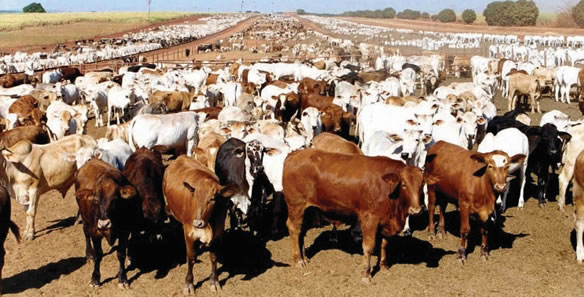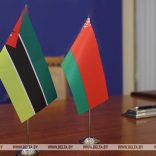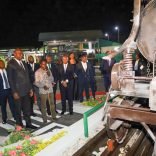Mozambique: Government expects almost €7M from gambling taxes this year
Mozambican beef producers challenged to assume national market

O País (File photo)
The Ministry of Agriculture and Food Security (MASA) has challenged beef cattle breeders in Mozambique to outline a strategy to deliver and supply quality meat to the Mozambican market with a view to reducing the current level of imports.
The challenge was launched by the National Directorate of Veterinary Medicine (DINAV) at a meeting in Maputo yesterday, which brought together cattle breeders, importers, slaughterhouse representatives and supermarket chains to reflect on the country’s meat production landscape.
The national veterinary director, Américo Conceição, who guided the meeting with the various stakeholders in the chain, stressed the need for everyone to work towards the soon-to-be-complete chain to take advantage of the window of opportunity opened by importers.
“We have seen here that there is an openness on the part of importers of the large supermarkets to supply meat, and that some breeders have the capacity to supply some of this meat,” Conceição said, stressing the need of the suppliers to be better organised.
According to Conceição, the country currently consumes around 21,000 tons of beef annually, and of this volume about 6,000 tons are imported, although the country has registered a growth of its livestock of about five percent a year.
Growth is still below the seven percent target set in the Agrarian Sector Economic Development Program (PEDSA), but the director said it was the government’s goal to make the country self-sufficient in livestock products by 2019.
Currently, beef production in Mozambique is 15,476 tons a year, with beef production in the south of the country 8,478 tons, 54.7 percent of the total national production, Conceição said, pointing out that the production of food products, in particular animal products, is one of MASA’s priorities.
Given the challenge of making the country self-sufficient in livestock products by 2019, DINAV is promoting technologies aimed at increasing production and productivity and, therefore, improving the quality of livestock products.
“The conditions for genetic improvement already exist, and we are now working on creating the necessary conditions for a fattening centre,” Conceição said, pointing out that this represents a factor of extreme importance for the quantitative and qualitative improvement of meat
Conceição debated the qualitative issues raised at the meeting by some of the importers because, in his view, the fact that the Shoprite supermarket is selling 93 percent of domestic meat production (150 head of cattle per week), itself constitutes an indicator of national meat quality growth.
The national veterinary director said the current exercise to consolidate the chain did not exclude small producers, who would later feed into the chain because they also have a role to play in achieving the 2019goal set by the executive.












Leave a Reply
Be the First to Comment!
You must be logged in to post a comment.
You must be logged in to post a comment.